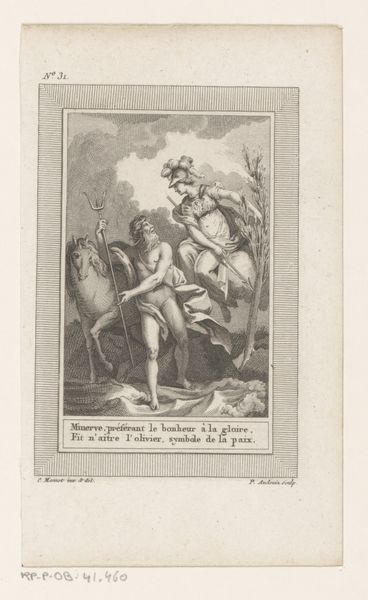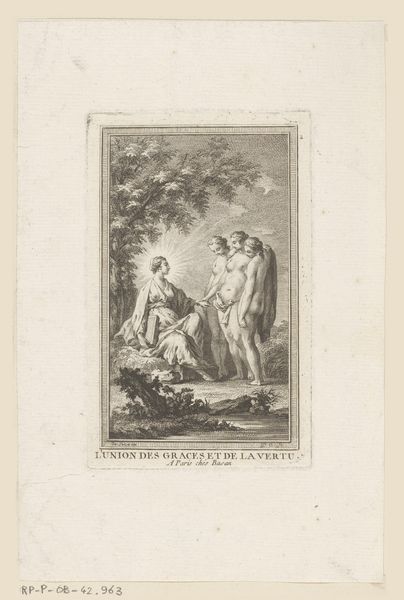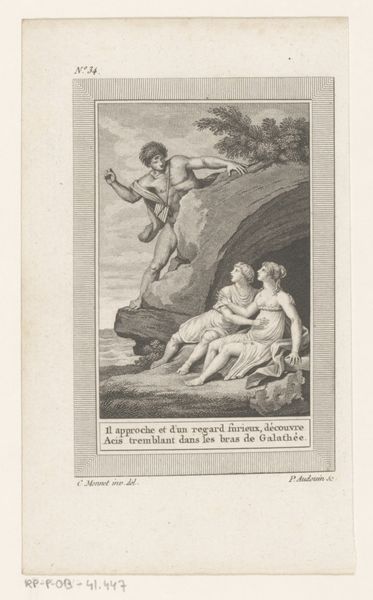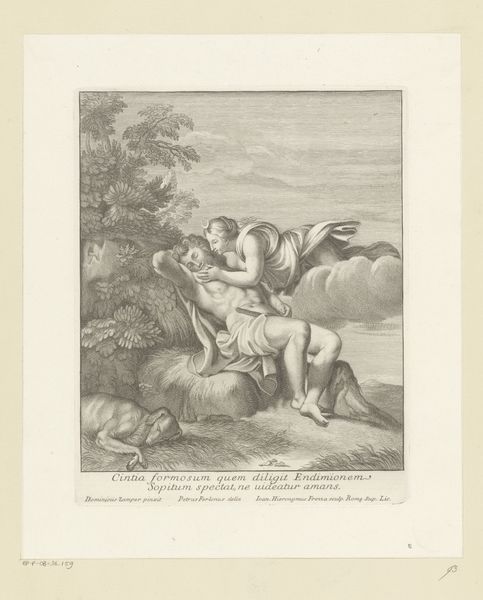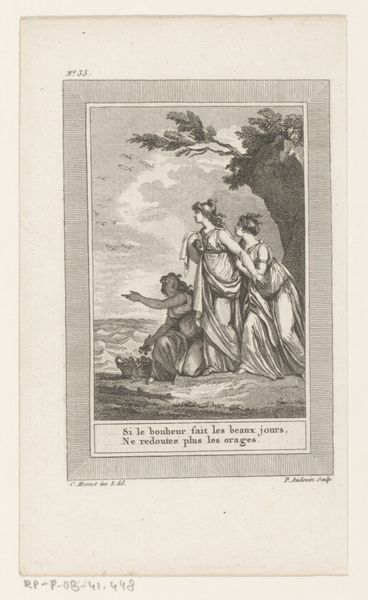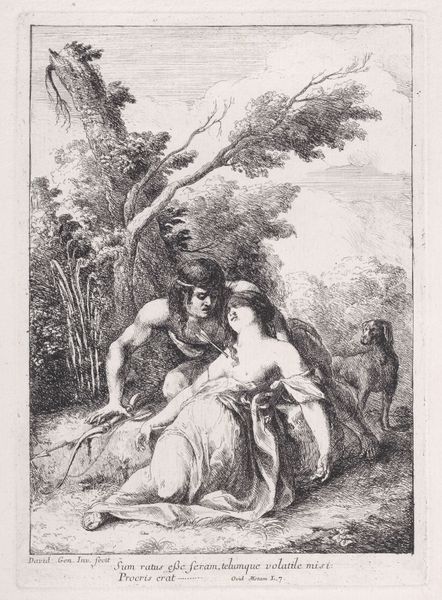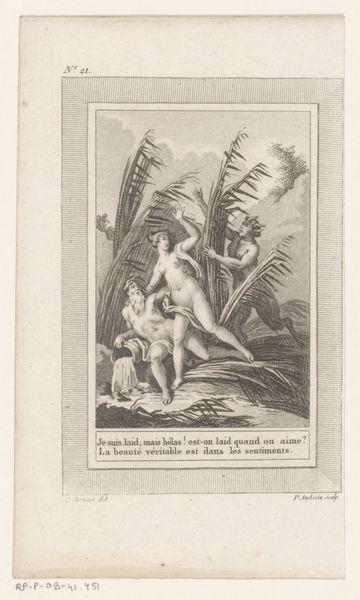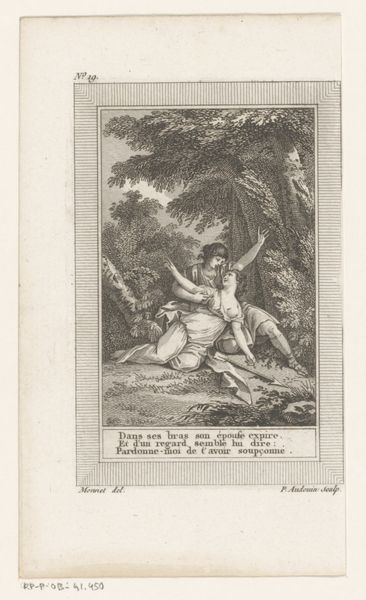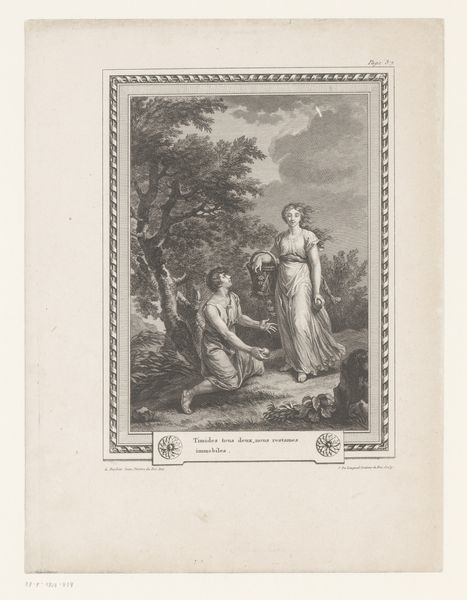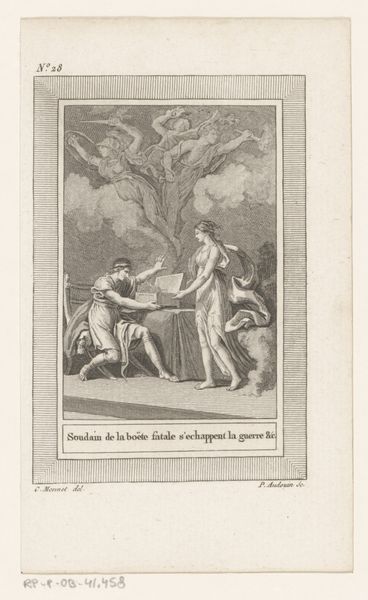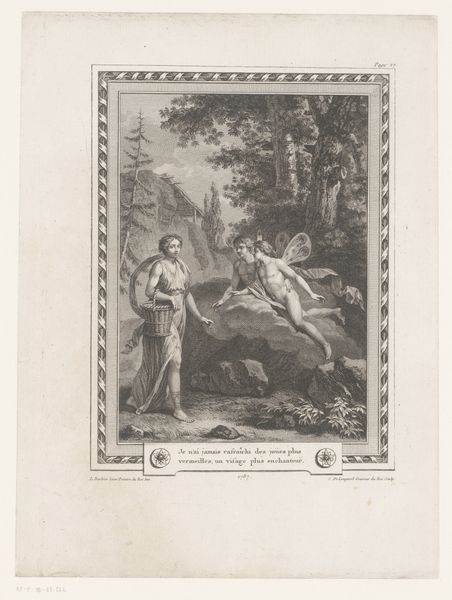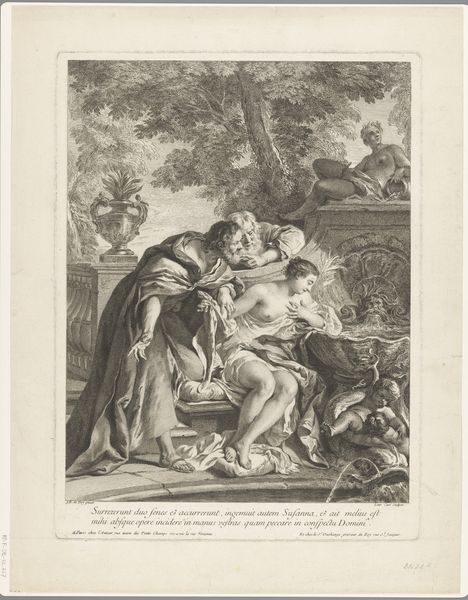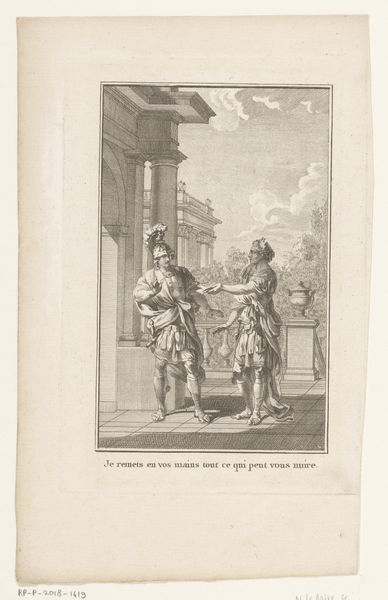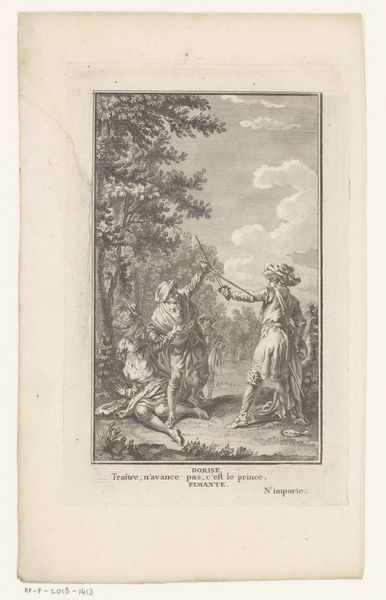
print, engraving
#
neoclacissism
#
narrative-art
# print
#
landscape
#
figuration
#
19th century
#
line
#
history-painting
#
academic-art
#
nude
#
engraving
Dimensions: height 155 mm, width 92 mm
Copyright: Rijks Museum: Open Domain
This print, *Bacchus vindt Ariadne op Naxos*, was made by Pierre Audouin, likely in the late 1700s or early 1800s. It is an engraving, which means the image was incised into a metal plate, probably copper, with a tool called a burin. Look closely, and you can see how the varying depths and densities of the lines create a range of tones, from the bright sky to the dark shadows under the tree. Engraving is a demanding process, requiring not only skill but also immense patience. Each line had to be carefully cut into the plate. The image would then have been printed by applying ink to the plate, wiping away the excess, and pressing paper against the surface to transfer the image. Prints like this were a key part of the visual culture, because they allowed images to be widely distributed, consumed, and interpreted. The labor involved in the making of this print is a reminder of the many hands and processes involved in the production and circulation of art. This challenges the traditional emphasis on the artist's individual genius.
Comments
No comments
Be the first to comment and join the conversation on the ultimate creative platform.
